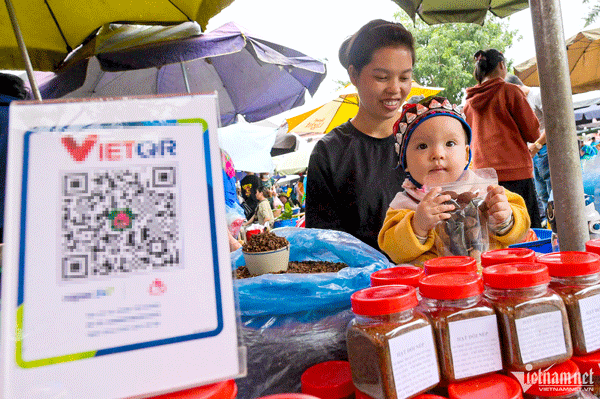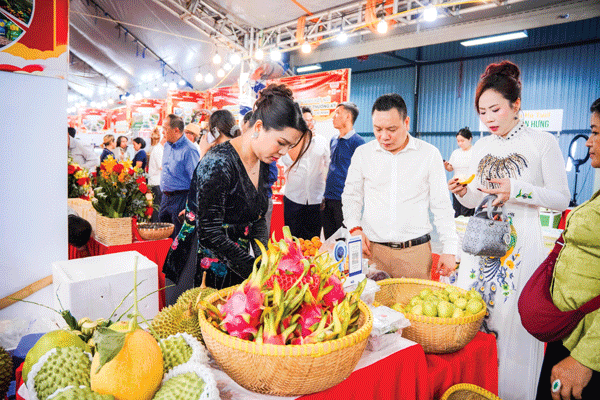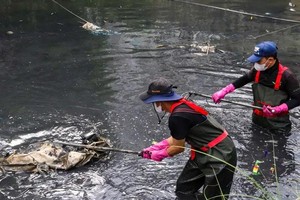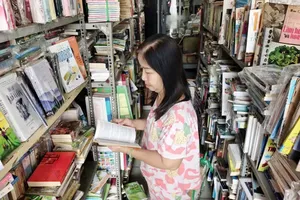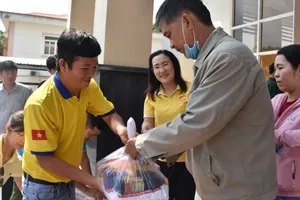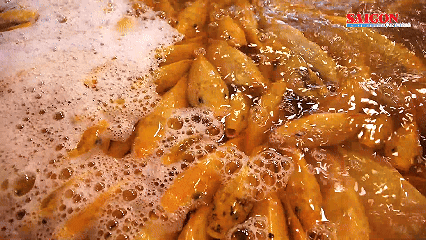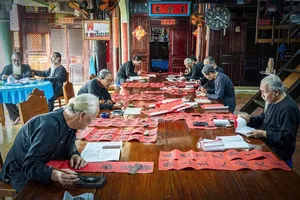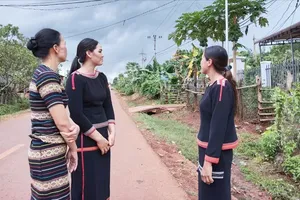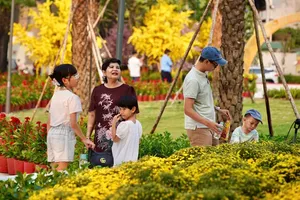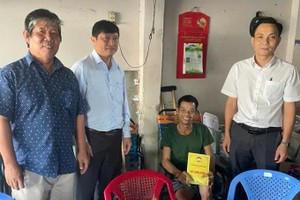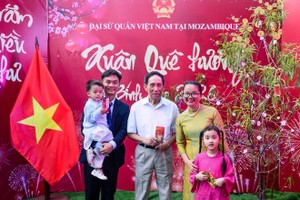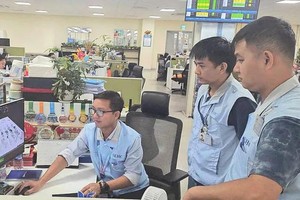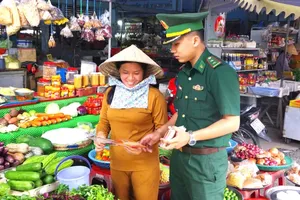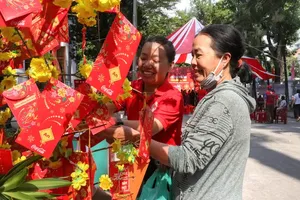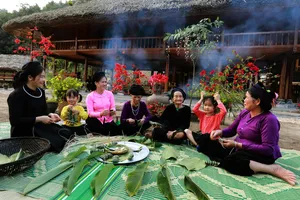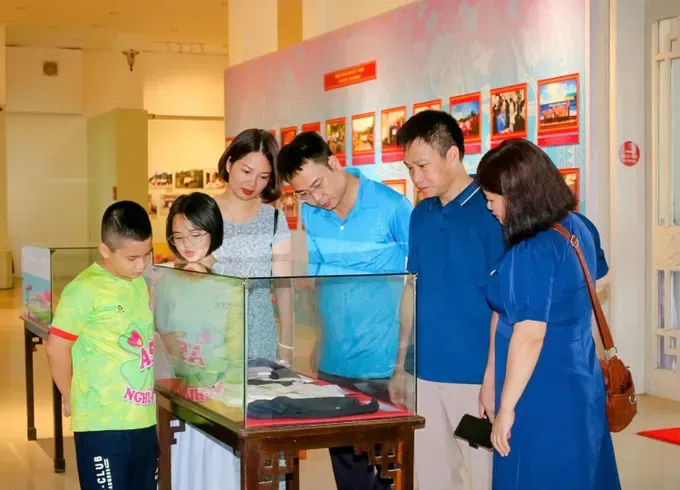
At 71, Nguyen Ngoc Anh, a former political prisoner of Con Dao (in Con Dao Special Zone of HCMC), still returns to this sacred ground every year. It is an unspoken promise she keeps with the comrades of her past. Each time, she carries with her the memories, the faces, and the voices of those who never left this hell on earth.
“At first, I came alone”, she shared, “but later I joined a group from the Con Dao Former Prisoners Club. On major holidays, like July 27, we come with the HCMC leadership delegation and perform songs of tribute. When we sing ‘Oh, Comrade’ or ‘Con Dao, Night of Hang Duong’, our voices choke with emotion, and the tears just fall.”
With each visit, she witnesses Con Dao Special Zone’s transformation. “Travel used to be so difficult. The boat would pitch and roll for a whole day at sea”, she recalled. “Now, the State and HCMC support our travel by plane. We come as a delegation, with our comrades, and with young people from the youth union.”
What comforts her most is seeing the growing presence of young people in the cemetery. “We’re old now”, she said. “Soon, we won’t be able to make this journey anymore. But when we see the young children coming here to light incense, our hearts are at peace.”
Not far from Hang Duong Cemetery, there is a simple, single-story house nestled next to the old Phu Tuong prison camp. Inside, Huynh Thi Kim Loan, born in 1963, was tidying the photos on the altar of her father, former political prisoner Huynh Van Bien. He was one of more than 150 former prisoners who volunteered to remain on the island after liberation.
“I was only 12 then”, Loan recalled. “The first time I ever met my father was when he came home to bring my mother and us children out to the island. I couldn’t even read. Con Dao is where I started first grade at the age of 12. It’s where I grew up, and where I’ve stayed ever since.”
Her father was assigned to help manage the historic site, and he wrote the very first tour narration for its guides. Her mother, meanwhile, tended to Hang Duong Cemetery each day. Back then, it was just a stretch of wild sand.
“Each grave was just a mound of sand”, Loan said. During the windy season, the bones of the dead would sometimes surface. Her childhood wasn’t filled with games, but with days spent walking with her father, carrying a basket to collect the skeletal remains. “I was too young to be afraid”, she recounted. “I just remember what my father always told me: ‘The remains must be gathered with dignity; they must be placed in a proper casket and laid in the earth with clean hands’.”
At 18, Loan began working officially at the cemetery, a job she would hold for 37 years. “We had no electricity, no running water, no machinery”, she said. “We carried water from 500m away to water the plants and cut the grass with sickles. It was hard, but no one ever complained. We all just tried to keep the cemetery clean and solemn, so our fathers and brothers could rest in peace.”
She knows every section, every row of graves, by heart. This intimate knowledge has helped countless families find their loved ones. “Some people see the grave and just collapse, crying without a sound”, she said, her own eyes welling up. “I just stand there and cry with them. I hope every young person comes here at least once to witness that.”
For over 50 years, Loan has never returned to the mainland, nor does she want to. Con Dao, she said, is her home. It’s the place that taught her how to read, how to love her country, and how to love her compatriots.
A few hundred meters from Loan’s home is Con Dao Museum. Here is where 40-year-old Nguyen Ngoc Nhu Xuan serves as a guide at the historic site.
Unlike children raised in the bright lights of the city, Xuan’s childhood was steeped in the scent of incense and the quiet presence of Hang Duong Cemetery. Her mother was one of the first guides on the island, and her uncle was a former political prisoner.
“Growing up, my home was filled with stories of life and death, of brutal torture”, she shared. “I think I have loved this place and this profession since I was in my mother’s womb.”
During peak season, she and her 17 colleagues work tirelessly, sometimes leading seven consecutive tours in a single day for nearly 2,000 visitors. “This is no longer a job”, she said. “It is a sacred responsibility.”
“For 113 years, Con Dao Special Zone was a living hell. Tens of thousands of patriots were imprisoned and sacrificed here. To live, work, and retell their stories is, for me, an immeasurable honor.”
The most poignant moments, she said, are when former political prisoners return. “In those moments, I’m no longer a guide. I step back and just listen. Because they are the most vivid, living witnesses. I listen, I remember, and I gather their stories to continue telling them for those who were left behind, and for the generations to come.”
The work of passing on this history begins early. Every summer, local schools bring their students to the museum. “We believe that nurturing patriotism must start young”, Xuan said, “so that the next generation understands that their homeland bled, that it suffered, and that the peace we have today did not come easily.”
Perhaps her greatest pride is seeing that sacred flame being passed on in her own home. After school, her young daughter often begs to come to the museum to listen to her mother’s stories. Later, at home, the young girl will stand up and play the role of the museum guide for her whole family.

